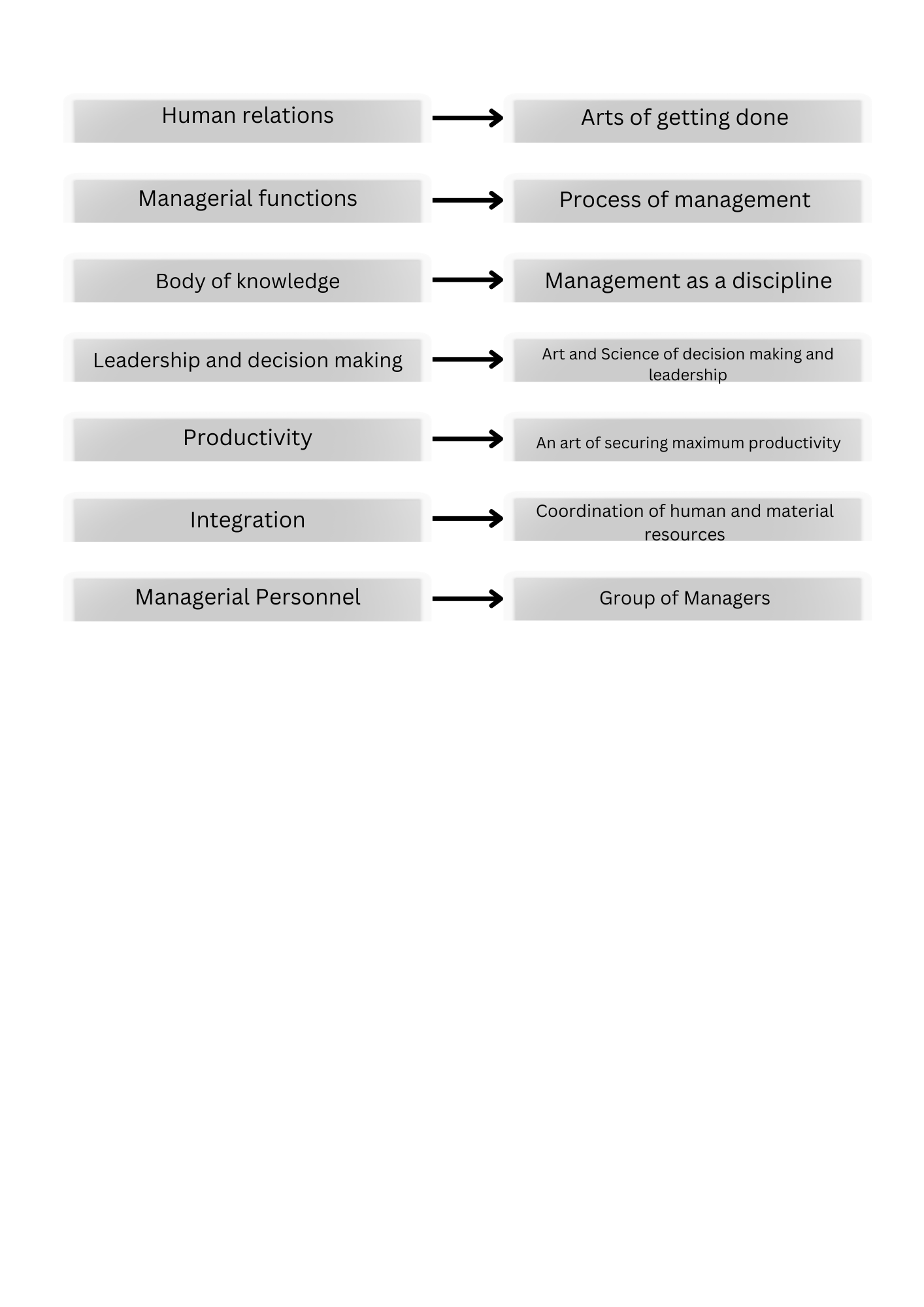Management is a field of study and a set of practices that involve planning, organizing, directing, and controlling resources (human, financial, material) to achieve organizational goals. The fundamentals of management encompass a variety of concepts and principles that guide the effective functioning of organizations. Here is an introduction to some key concepts in management:
- Definition of Management: Management is the process of coordinating and overseeing the activities of an organization to achieve specific goals. It involves making decisions, allocating resources, and ensuring that the organization’s objectives are met.
- Functions of Management: Management can be broken down into four primary functions, often referred to as the P-O-D-C framework:
- Planning: Setting goals, defining strategies, and developing plans to coordinate activities.
- Organizing: Structuring tasks and resources to achieve the organization’s objectives.
- Directing (Leading): Guiding and motivating employees to execute plans and achieve goals.
- Controlling: Monitoring and evaluating performance to ensure that goals are being met, and taking corrective actions as needed.
- Management Levels: Management operates at different levels within an organization, including:
- Top-level management: Responsible for setting overall organizational goals and policies.
- Middle-level management: Focuses on implementing the policies and plans developed by top-level management.
- Front-line (or first-line) management: Directly supervises employees and implements the plans of middle management.
- Management Skills: Effective managers possess a combination of technical, interpersonal, and conceptual skills:
- Technical skills: Expertise in a specific field or activity.
- Interpersonal skills: Ability to work with people and understand their behavior.
- Conceptual skills: Capacity to think and conceptualize abstract and complex situations.
- Management Theories: Various management theories have been developed over time to explain and guide management practices. Some notable ones include:
- Classical Management Theories: Scientific management and administrative management by Frederick Taylor and Henri Fayol, respectively.
- Behavioral Management Theories: Emphasize the importance of human behavior in the workplace, including the Hawthorne studies.
- Contingency Management Theories: Suggest that there is no one-size-fits-all approach to management, and the best approach depends on the situation.
- Organizational Structure: The way an organization is structured affects how it functions. Common structures include functional, divisional, matrix, and flat structures.
- Ethics in Management: Management involves making decisions that impact various stakeholders. Ethical considerations are essential, and managers should adhere to principles of fairness, integrity, and responsibility.
- Globalization and Diversity: In today’s interconnected world, managers must navigate the challenges and opportunities presented by globalization and diverse workforces. Cultural awareness and adaptability are crucial.
Understanding these fundamental concepts provides a solid foundation for individuals aspiring to enter the field of management or for those looking to enhance their managerial skills. Management is a dynamic and evolving discipline, and staying abreast of contemporary trends and practices is essential for effective leadership.
